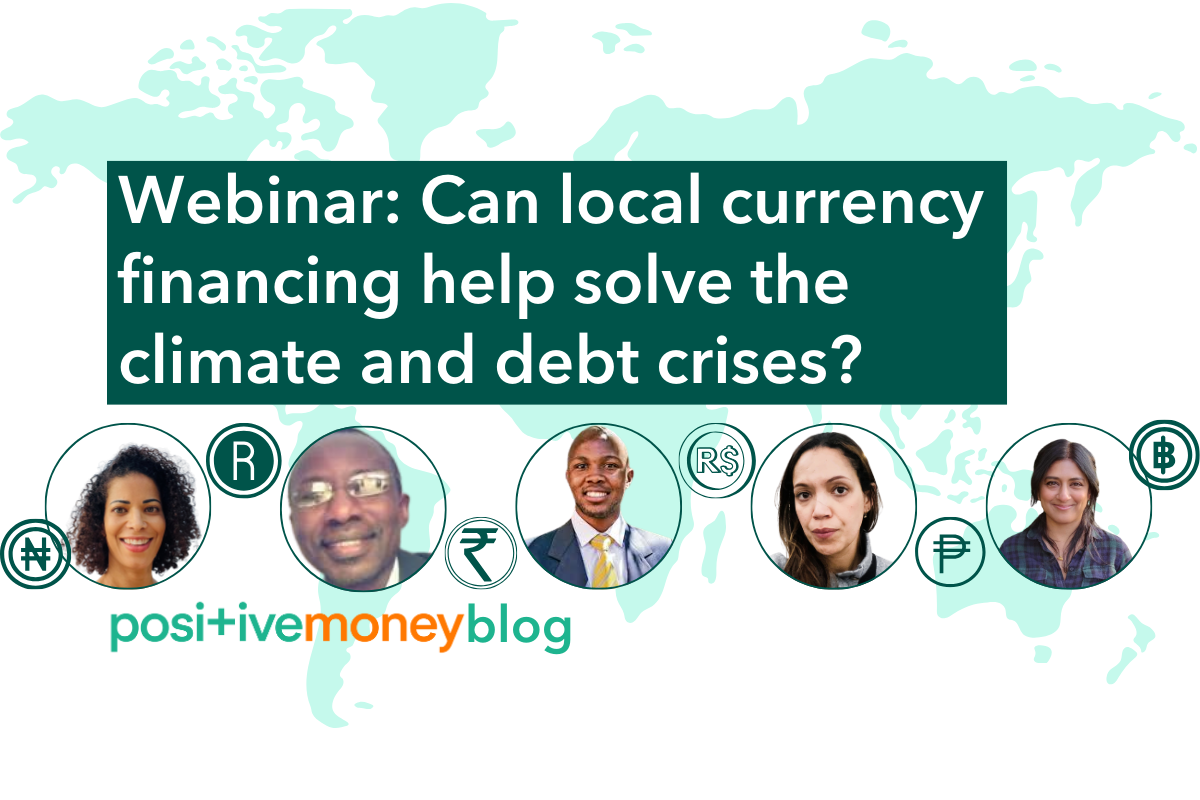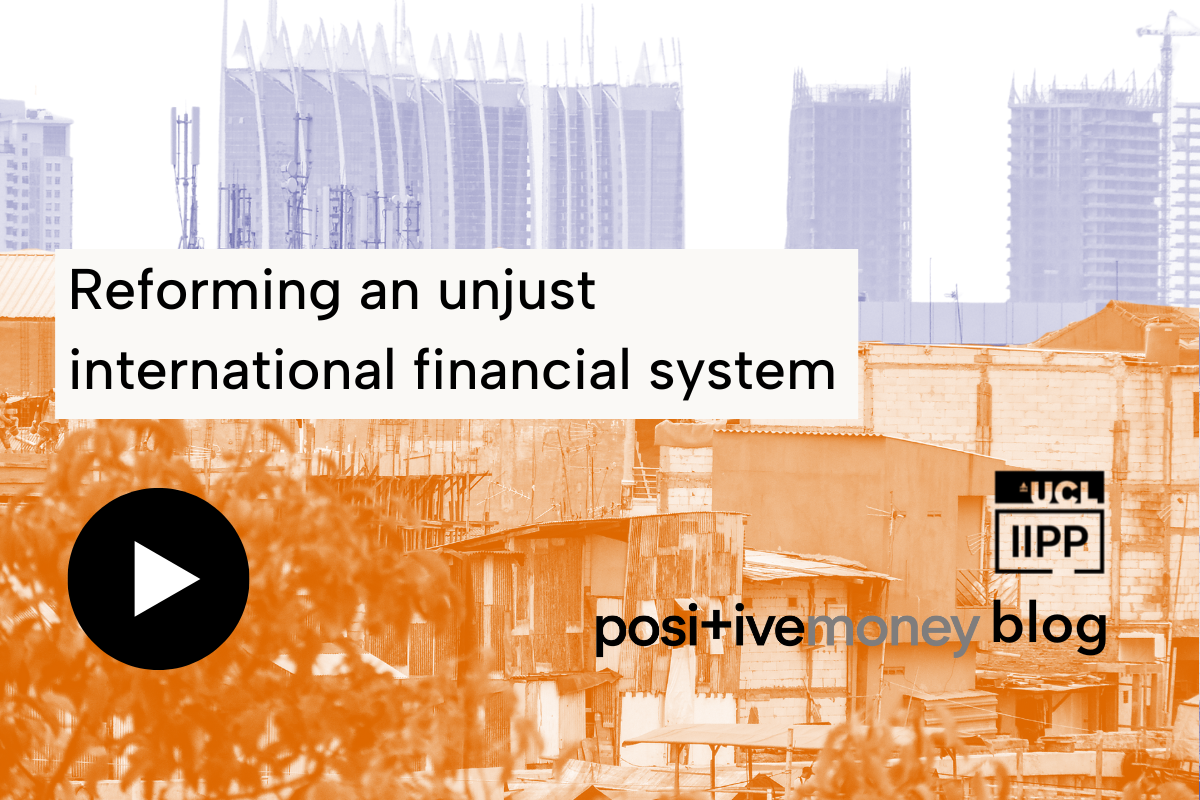
UKGlobal
27 January 2026
The second in our series of four panel discussions on the topic of ‘Can progressive macroeconomic policy for a just transition work domestically and internationally?’
Since the 2008 crisis, many leading thinkers have called for a new economic settlement. Central bank power has expanded with little accountability, with different kinds of economic policy (like monetary and fiscal) pulling in opposite directions. The ecological crisis, intersecting with new kinds of crises in the financial sector, price instability, rampant inequality within and between countries, and social and political unrest, makes establishing a new macroeconomic regime an even more urgent task.
Across two days in June, jointly with UCL’s Institute for Innovation and Public Purpose (IIPP), we brought together experts and civil society representatives to discuss what a macroeconomic framework for a just transition would look like, at national and international levels. Watch the second discussion below.

The panel discussed the role of the International Monetary and Financial System in reproducing global inequality. They suggested reforms to international institutions so that they could better serve poor countries and make up for historic injustices.
Dr Richard Kozul-Wright served until recently as the Director of the Division on Globalization and Development Strategies at the United Nations Conference on Trade and Development (UNCTAD). Richard explained that the World Bank and International Monetary Fund were originally intended to stop countries promoting their own domestic issues at the expense of its trading partners or neighbours during the 1930s, and prevent bullying of smaller countries. Many would argue these institutions have never really achieved these aims, but it’s useful to remember why they were founded. He argued for an independent global debt authority independent of creditors and debtors, to facilitate negotiations over sovereign debt on more favourable terms to poorer countries.
Avinash Persuad is a dual national of Barbados and the United Kingdom, and has served in many high-level roles, including Special Climate Envoy to the Prime Minister of Barbados, and special advisor on climate to the Inter-American Development Bank. Avinash spoke in favour of expanding Special Drawing Rights (SDRs) to help poor countries tackle climate challenges without increasing their debt. SDRs are a type of international reserve created by the International Monetary Fund that countries can use to access money when needed, for example to build stronger infrastructure or respond to natural disasters. The Prime Minister of Barbados, Mia Mottley, made a famous speech at the COP26 Climate Summit advocating for SDRs to be used in this way.
Dr Basani Bayoli is a Programme Co-Director at the Institute for Economic Justice in South Africa. She is a feminist, development economist and activist. Referring to the South African Just Energy Transition Partnership, an initiative launched in 2021 at the COP26 climate summit, with financial backing from countries like the United States, the United Kingdom, Germany and France, she explained why it is so important for Global South countries to be able to bargain for the best possible deals with international institutions. Transition deals must benefit the domestic economy, and not be designed to serve the energy needs of the Global North. This must involve democratisation, such as strong parliamentary oversight of processes involving international financial institutions.
Dr Fadhel Kaboub is an Associate Professor of economics at Denison University and President of the Global Institute for Sustainable Prosperity. Fadhel’s work has focused on designing public policies to enhance monetary and economic sovereignty in the Global South. Fadhel spoke about the need for cooperation between countries in the Global South, including on industrial, agricultural, and energy policy. If poorer countries can develop food and energy sovereignty, he argued, this would change the balance of power in the global economy and give the Global South a better bargaining position in global trade systems.
This panel focused on the pitfalls of the current international financial system, which exacerbates the economic vulnerability of the Global South, locking poorer countries at the bottom of global value chains as the source of cheap raw materials, and making it far too difficult for governments to spend money on public goods. Reforming these systems is critical to tackling the climate crisis and improving living standards across the globe.
Catch up on the first panel discussion and look out for the next two videos in the series on our YouTube playlist here.
___
Sign-up to our mailing list for regular updates, or donate to support our work to redesign our economic system for social justice and a liveable planet.
